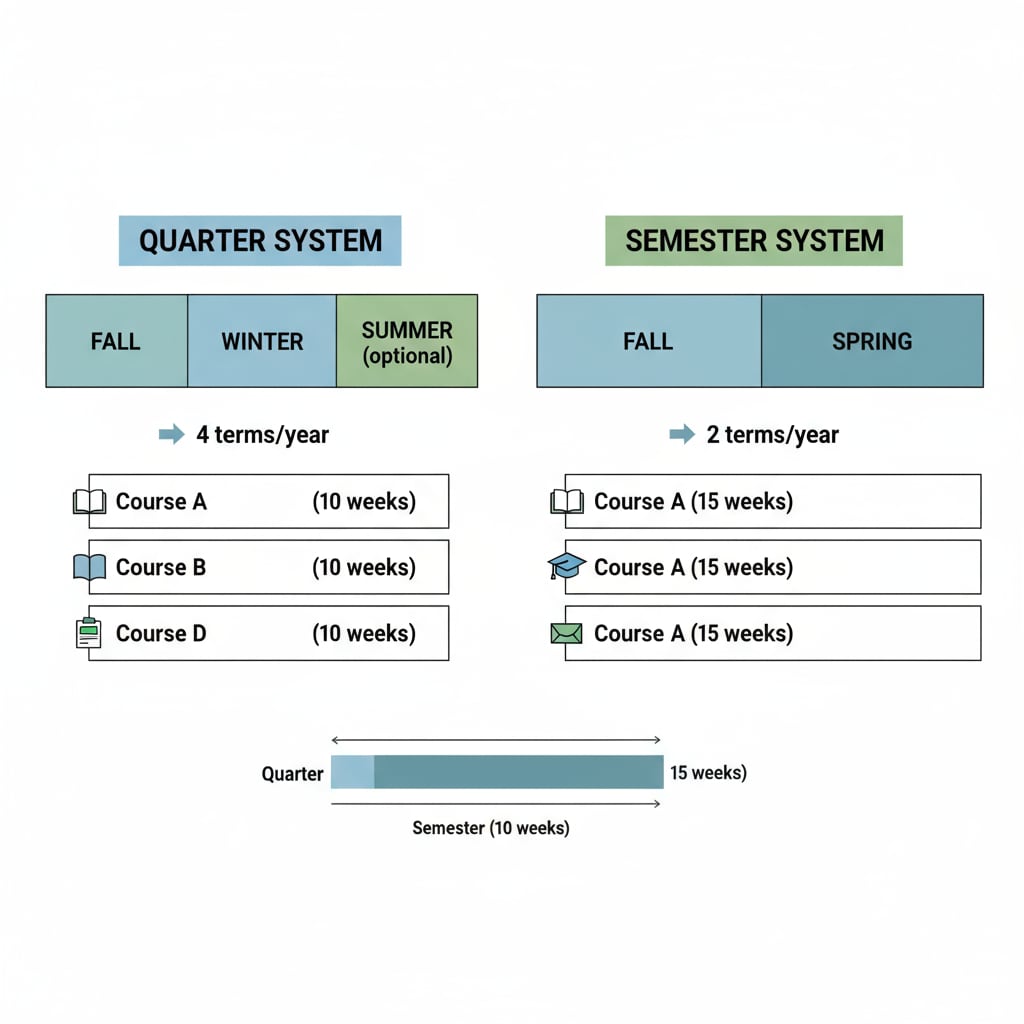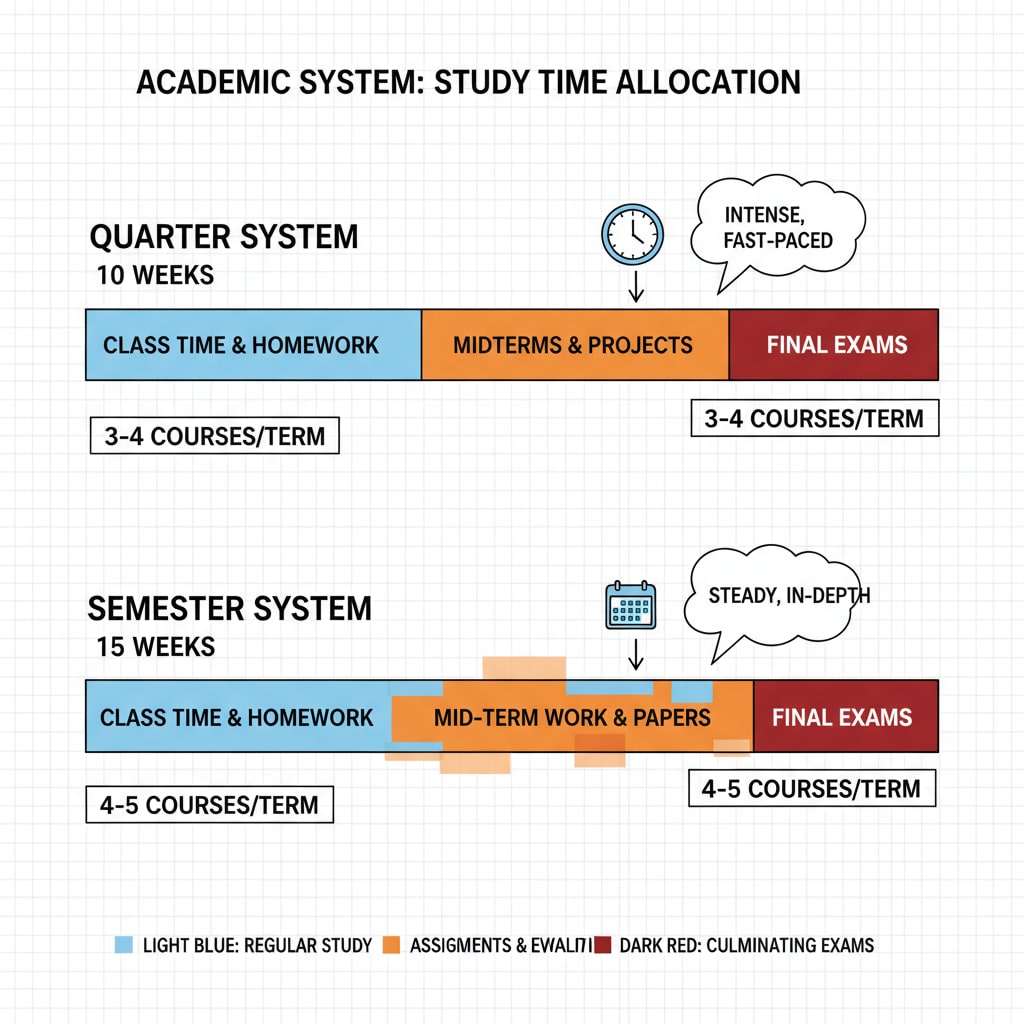The quarter system and semester system are two prevalent academic arrangements in K12 education, each with a significant impact on students’ academic focus and multitasking abilities. Understanding these differences can provide valuable insights for educators and parents in guiding students’ learning paths.

The Quarter System: Intensive Focus
The quarter system divides the academic year into four quarters. Each quarter is relatively short, typically lasting around 10 weeks. This shorter duration requires students to quickly immerse themselves in a subject. For example, students taking a math course in a quarter system have to grasp new concepts rapidly. As a result, they often develop a more intense focus during this period. According to Education.com, the concentrated nature of the quarter system can enhance students’ ability to deeply engage with a single subject at a time.
The Semester System: Broader Learning and Multitasking
In contrast, the semester system has a longer span, usually around 15 – 18 weeks per semester. This extended time allows students to cover a broader range of topics within a subject. However, with more time, students may also be juggling multiple courses simultaneously. For instance, a student in a semester system might be taking English, science, and history all at once. This promotes multitasking skills. As stated on Wikipedia, the semester system encourages students to manage different tasks and responsibilities concurrently.

When it comes to academic focus, the quarter system might lead to a deeper understanding of individual subjects due to its concentrated nature. On the other hand, the semester system trains students to balance multiple academic demands, which is an important skill in today’s complex world. Educators and parents should consider these characteristics when helping students plan their studies. For example, students who struggle with multitasking might benefit more from the quarter system, while those who are good at managing multiple tasks could thrive in the semester system.
Readability guidance: Short paragraphs and lists are used to summarize key points. Each H2 has a related list or explanation. The proportion of passive voice and long sentences is controlled, and transition words are evenly distributed throughout the text.


